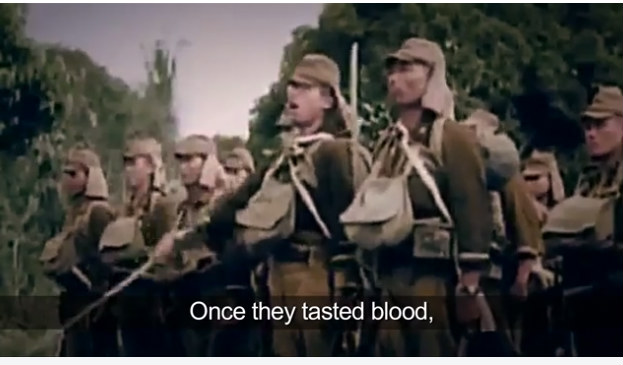Go (coco)nuts! Share this story with your friends.
A new documetary about the gruesome Battle of Manila made its world premiere on February 5 at the National Museum of the Philippines.
Manila 1945: The Rest Of The Story is the seventh war documentary produced by the duo of Peter Parsons and Lucky Guillermo, who have made it their lifelong advocacy to document World War II in the Philippines and share the story of the survivors while they are still around.
Parsons and Guillermo did not personally witness the war here in the Philippines, but their fathers played very important roles in the local resistance movement against the Japanese. Parson’s father, Commander Chick Parsons, was an undercover spy who supplied what the local guerilla groups needed via a fleet of twenty submarine squadron called Spyron. Guillermo’s dad, Lieutenant Antonio “Silver” Guillermo, led a guerilla group in the Northern Philippines..
For their latest feature, the duo wanted to reach out to a younger audience whom they feel are the ones most unaware about the war. So they added to their team director and actor Joel ‘Bani’ Logroño. A recent graduate of International Academy of Film and Television in Cebu, he was tasked to make the Battle of Manila speak to this current generation.
On a limited budget, they succeeded in turning out a 53-minute documentary that shows how World War II affected the country.
It was able to achieve this through the use of computer animation, photos, news footage and interviews with historians and survivors. It also attempts to show how the aftermath of the war still affects us today.
One of the issues they tackle in Manila 1945: The Rest Of The Story is the participation of the Makabayang Katipunan ng mga Pilipino (Makapili) and collaborators during the Japanese occupation.
Members of the Makapili were notorious for pointing out family and neighbors who were against Japanese rule or aiding guerillas. Those who were caught resisting Japanese rule were rounded up and later executed.
After the war the Makapili bore the ire of the friends and families of those who were executed. This became more complex as relatives of dead Makapili members would sue members of the resistance movement for murder.
According to the documentary, it was because of this and a few other reasons that President Epidio Quirino decided to grant a general amnesty. But did he inadvertently send a message to the nation that it was possible to betray your country for monetary gain without having to suffer the consequence?
DVD copies of the documentary were also sold to interested members of the audience, which included Battle of Manila survivors Juan Rocha and Edgar Krohn. The documentary won’t be released in theaters but will be screened in high schools and universities across the country.



